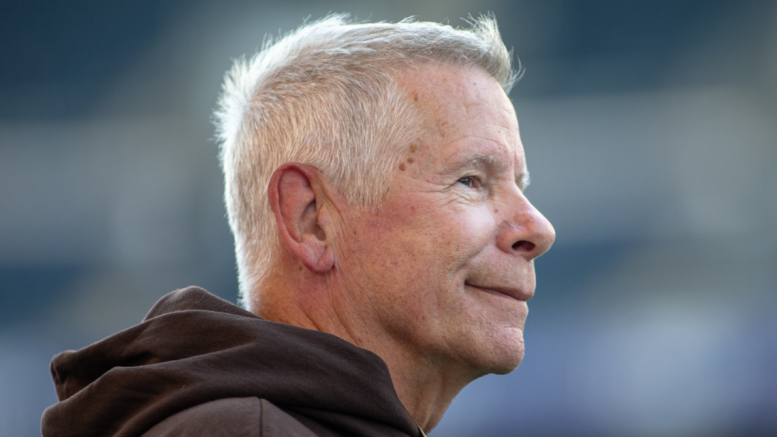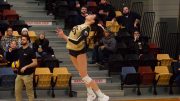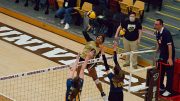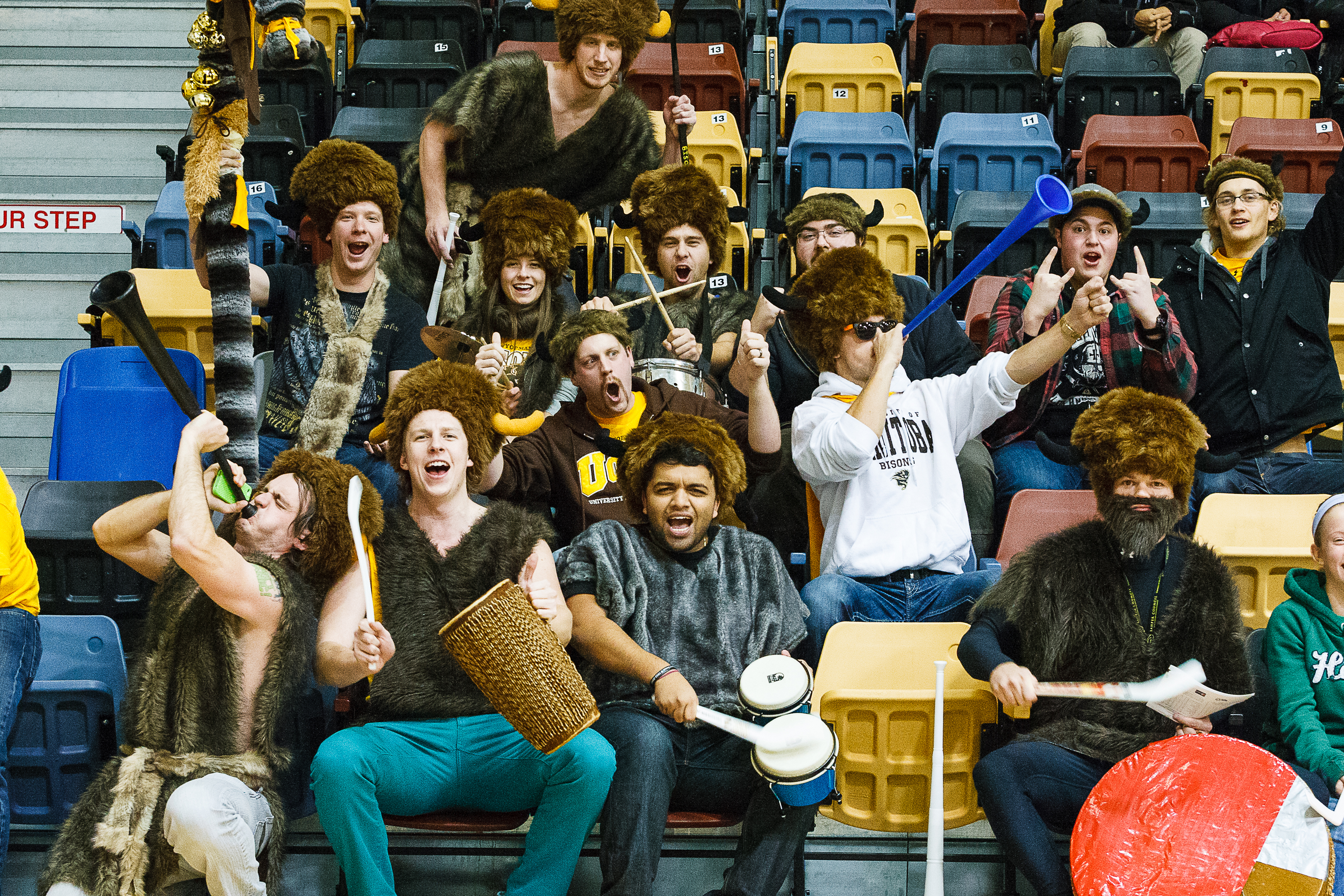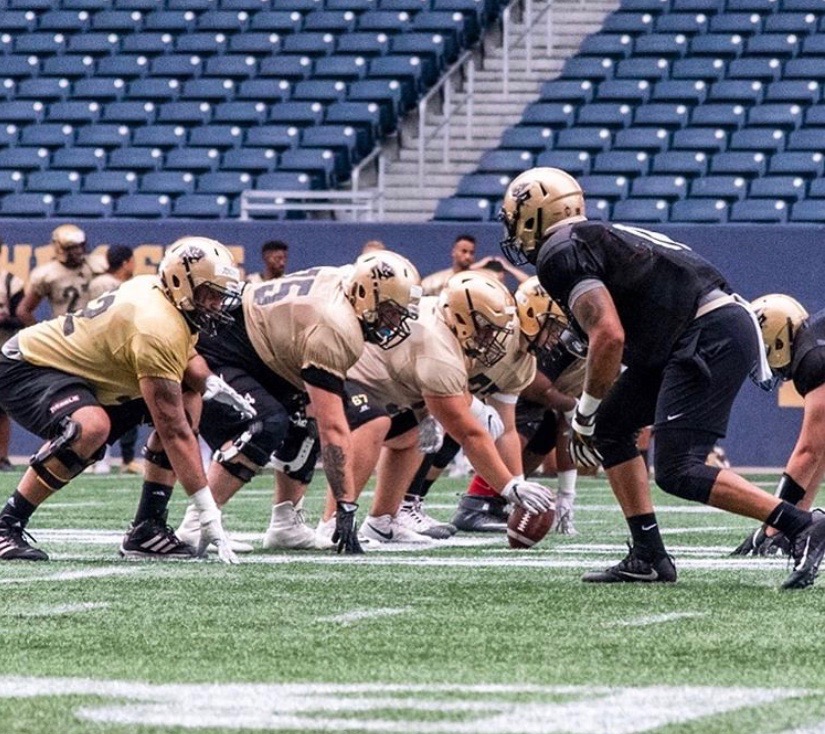Brian Dobie, head coach of the U of M Bisons football team, is set to retire at the end of the current season. The legendary leader has been serving as head coach of the U of M since 1996.
Dobie previously led the Churchill High School football program for 21 years, bringing his football coaching career to 50 years.
Dobie has the most victorious record of any coach in Bisons’ football history. He has won the Canada West Coach of the Year award five times (1999, 2000, 2001, 2002, 2006) and was U Sports Coach of the Year in 2001. In 2007, Dobie helped guide Manitoba to their first Vanier Cup in over three decades. Furthermore, Dobbie was inducted into the Manitoba High Schools Athletic Association Hall of Fame Class of 2015.
Presently, Dobie’s record includes having coached 63 athletes drafted by the CFL and two athletes by the NFL.
Following his decision to retire, Dobie spoke to the Manitoban about his tenure as head coach of the Bisons football team.
Abdul: The 28th season, entering your 29th season, all of a sudden, Coach Brian says he is leaving. And I keep asking myself, what is pushing Coach Brian out? Is there anything that we don’t know? So, what really is motivating you to leave Bisons football?
Brian: Boy, it is, and I hope people understand this if they read this. And do not take this the wrong way. Just take my words exactly as they are. I absolutely do not want to leave. Why would I want to leave a group of a hundred highly motivated, driven twenty-something-year-olds who are chasing their dreams?
Every day I walk in here, it’s invigorating. It’s motivating. I love the players, year in, year out. That’s why you’re here, for the student-athletes, for the players. I do not want to leave them. I cannot tell you how much. I don’t even like thinking about it, how much I will miss them and that environment. Why would I want to leave this incredible complex we have here within this incredible stadium? I don’t want to leave. But I want to retire. And the reason I want to retire is I still feel really enthusiastic. I still feel I’ve got a lot to give. I still feel energetic. I still feel full of life. And my wife’s name is Jackie. She and I have been together since we were in grade 11. Yeah, we’ve been together pretty much our whole lives. And that girl, for the past 50 years, this is my 50th year of being a head coach at high school and at university combined. She has waited for me for 50 years to come home at night. I mean, and what people think, they think, well, football season, oh, it’s not that long. And there you go.
A: Now coach, I’ve been looking at your challenging moments and the fruitful days. Days that you may reflect and say, “ah, today was a happy day.” And there are days that you reflect and say, “today was a challenging day.” What are some of the challenging moments you’ve encountered so far?
B: When I first came into the program, there were a lot of challenges. We hardly had any scholarship money. So, throughout my whole career, it’s been non-stop trying to raise money. And I’m proud of where we are now. We’ve raised a lot of money. And we’re now in a very, I think, good position, if not an enviable position. You know, I was the only coach on staff. Trying to run a football program and youth sports all alone was, for sure, beyond overwhelming for me. I could barely keep my nose above water. I was just surviving. That was my first nine or ten years in the program. And being able to hire a full-time assistant coach, Stan Pierre, he’s been amazing. So going through that on my own for all those years, when I look back, I can’t even believe that it happened. And then we got Stan, that changed everything for me. He’s the best football coach I’ve ever experienced. Not just coaching with, but coaching against. He’s an incredible football coach and a great person.
A: What message do you have for your successor?
B: I hope that the next Bisons football coach falls in love with this program and appreciates all the highs and all the lows for exactly what they bring. Great experiences, that is what I wish. I wish that person all the best and that they embrace an incredible opportunity to coach in one of the best programs in the nation, one of the great venues in the nation, on one of the great campuses in the nation.”
A: I look at Jackson Tachinski, AK Gassama and I ask myself, how are they able to combine academics and playing because they have maintained their spot in the team while maintaining their performance in classroom. How are they able to do that?
B: When our players embrace not just being a football player but embrace being a student-athlete, that is a perfect formula to move forward in their lives out into the big wide world, and they bring so much with them in that situation.
A: I want your message on how student-athletes can stay disciplined across the board.
B: I think that the message is pretty simple. The adversity is always there. The challenge is always there. Be true to yourself, just be true to yourself. And again, look in the mirror and if you really mean it, if you really want to be the best that you can be, that doesn’t just happen on the football field or the hockey rink or the volleyball court. It happens every day when you wake up in the morning. Wherever your day leads you to be the best person you can be, to learn something today, to give something today to someone else, and all the things that make us better. Invariably if that happens, you keep growing and that is what I think we all should be targeting in life. We all want to keep growing, we all want to keep getting better as people, and I think that’s really what this is about. It’s not just about winning games, losing games, it is far more than that. The student-athlete experience is everything.
